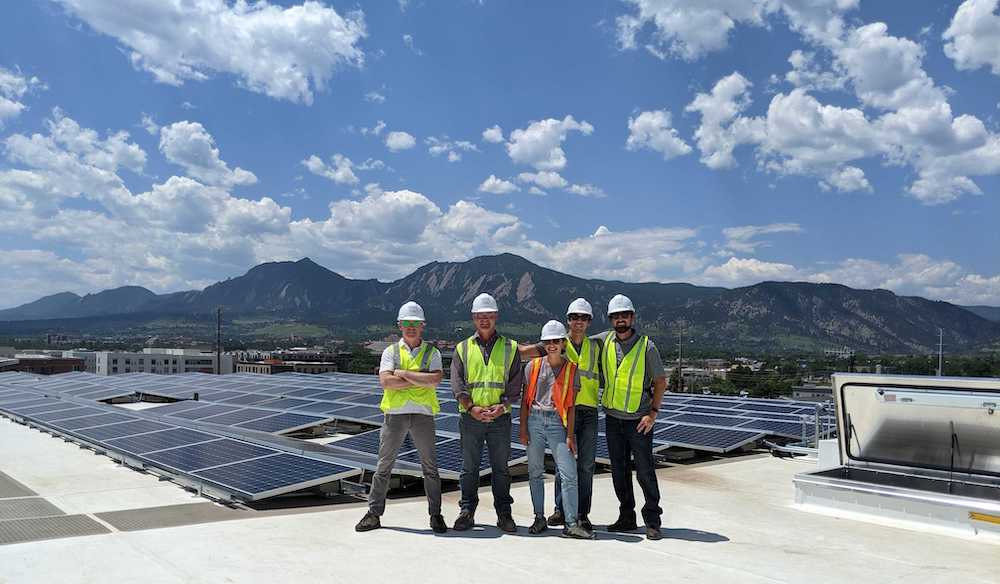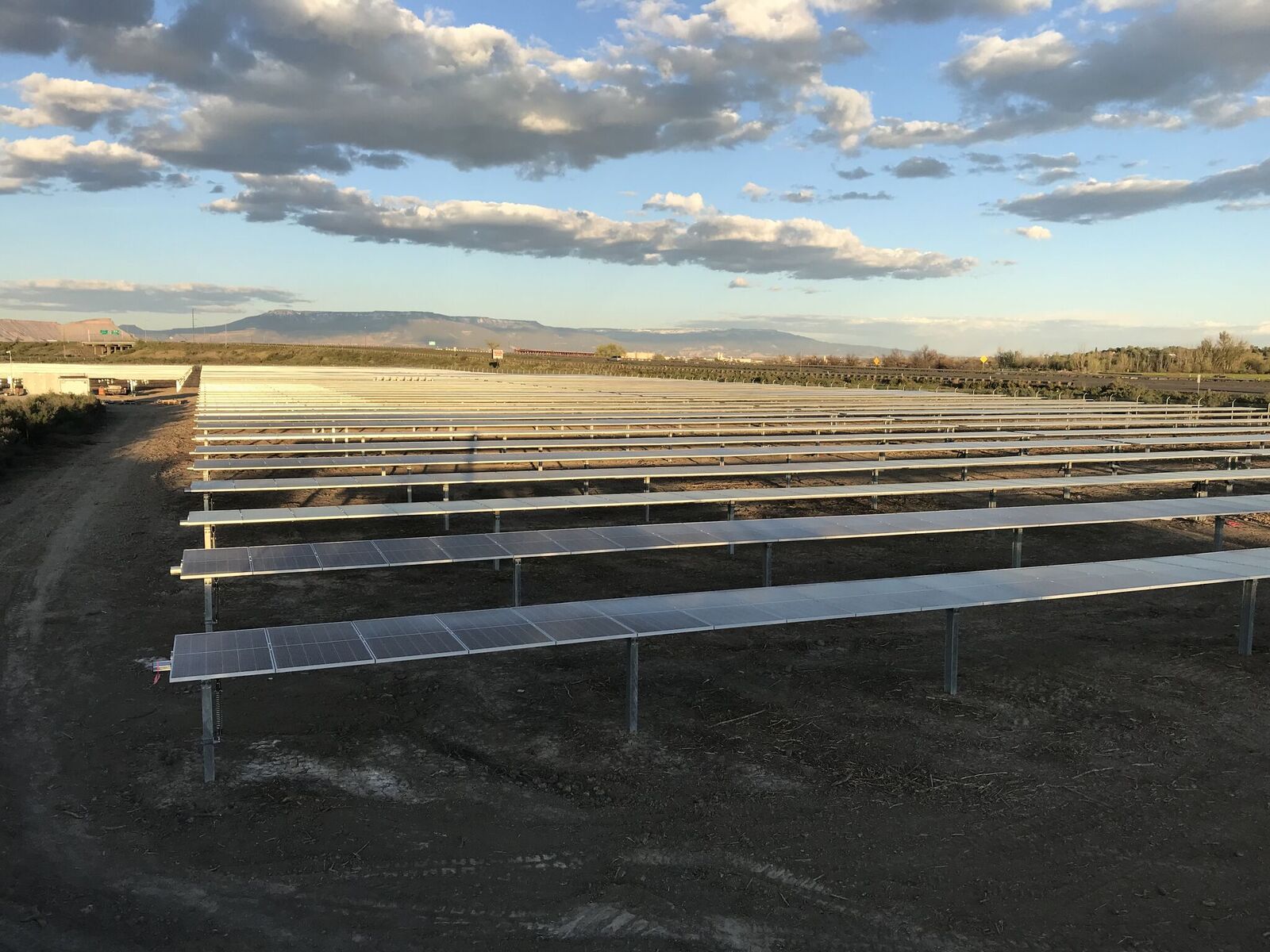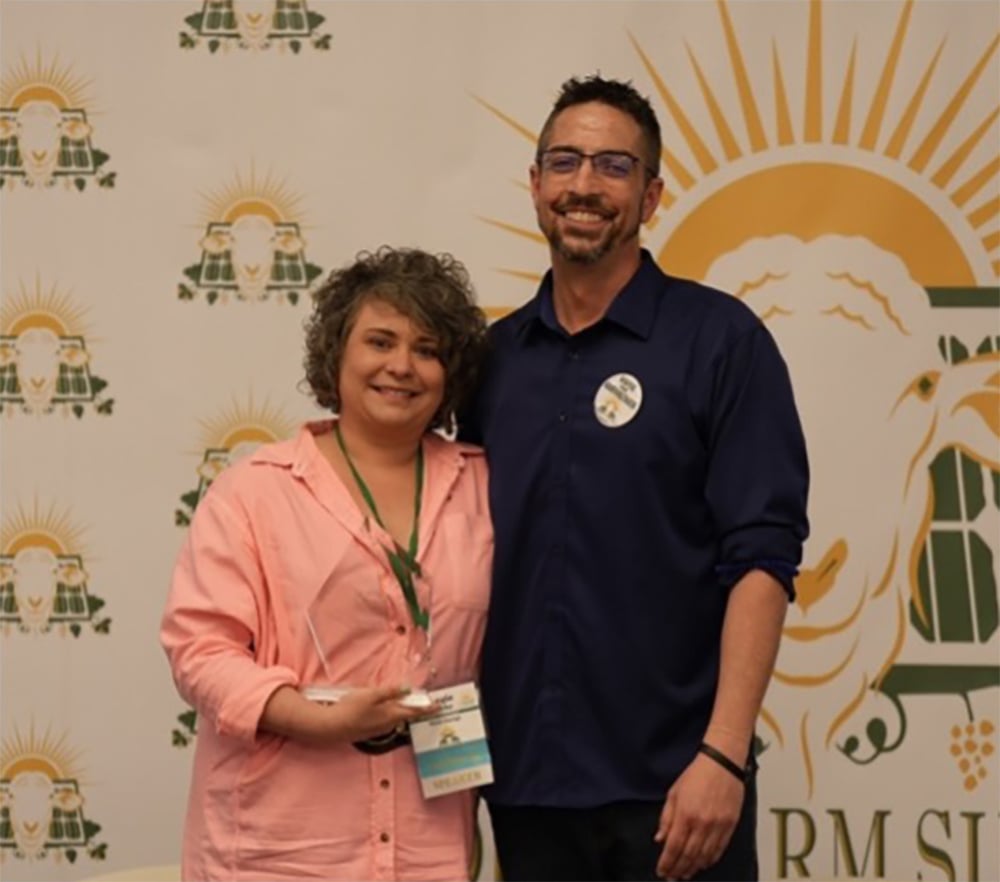B Corp Month: We Go Beyond
March 24, 2023

Every March, the global B Corp community joins in celebrating and sharing what it means to be a B Corp and why we must improve our economic system. With this year’s #WeGoBeyond campaign, we’re joining our fellow B Corps in encouraging all businesses to establish practices that enrich our collective human experience by treating people and our planet with the respect they deserve.
In the renewables industry, it can be easy for companies to coast since our day-to-day operations inherently help the environment. However, regardless of our product or services, we should all strive to raise the bar even higher. At Pivot, we hope to exemplify how driving meaningful positive change can correspond with achieving scalable successes in a highly competitive industry.
We cover our top achievements from last year in our ESG Report; the following will focus on the organizational structure that we deem responsible for our many successes.
Since Pivot was founded in 2009, we’ve held ourselves accountable to making a positive impact by using the highest corporate measurement standards available. At the outset, this took the form of adhering to triple bottom line values. Today, Pivot’s corporate strategy is measured by ESG factors. After being acquired in 2021, we swiftly sought to renew our B Corp Certification, which also entailed legally converting Pivot into a Benefit Corporation. As a registered Benefit Corporation, we’ve deepened our commitment to improving our communities by holding ourselves responsible for evaluating how our business decisions will impact all possible stakeholders.
Last year, Pivot established three new committees dedicated to Environmental, Social, and Governance (ESG) issues respectively; each group is led by an elected group member and tasked with managing a budget and advancing our ESG-related initiatives. The three leaders originate from different teams across the company, and are each responsible for ensuring that environmental stewardship, social leadership, and responsible governance are dutifully considered in all business decisions.
To shed light on how our ESG Committees function, we sat down with all three Committee Leads to learn more about their role in pushing Pivot to go beyond business as usual:
What motivates you to go beyond business as usual?
John Stroud | Director of Origination: “Business as usual” is no longer a viable option in the broader business context. Within the Environment (E) Committee, we are motivated to identify the most impactful vehicles to halt the negative effects of climate change and to begin to institutionalize best practices. Our efforts within the committee can serve to put a more palpable and formal structure around the broader commitments we have as a B Corp.
Annie Lappé | VP of Policy and Impact: I grew up camping and hiking and was always deeply connected to the natural world and aware of the fundamental need to protect clean air and water. From an early age, I knew I wanted to spend my life protecting the health of our incredible planet. I spent many years developing clean energy policies at the state level to move us to a 100% renewable future. Over time, as I learned about the disproportionate impact of pollution and extractive industries on lower-income and black, indigenous, and people of color (BIPOC) communities, I became more and more focused on equitable access issues within clean energy. For me, going beyond business as usual means bringing an equity lens to the office and spending more time, energy, and resources working to bring the benefits of clean energy to the communities that need it the most. I bring this perspective into the Social (S) Committee, where we are focusing on equitable workforce development partnerships and creating a culture of service and volunteerism within Pivot.
Chad Schubert | Sr. Director of People and Culture: I am driven to make a meaningful, positive impact in our world, and I feel so fortunate to be at a company where my day to day work contributes to making a bigger impact than I ever could on my own. Business as usual has led (even if unintentionally) to many of the environmental and social issues that we face today; it is imperative that we all do our part by carefully examining how we can change course, do better, and make a positive, lasting impact. I am deeply motivated by the opportunity to head the Governance (G) Committee and help make Pivot a leader in our field and an example for other businesses to replicate.
Are there any hidden benefits of working with B Corp principals?
John: Yes. At Pivot, there is a fundamental understanding that environmental stewardship needs to be continually discussed, improved upon, and incorporated into our core business. The E-Committee is one vehicle within Pivot that is looking to quantify and propagate the good work we do on a daily basis. This means not just improving our environmental processes and performance, but also evolving a framework with our external partners to encourage them to do the same.
Annie: The framework pushes us to ask, "how can we be the most socially impactful and environmentally responsible developer out there?" It allows us to take risks and be creative in thinking through how our products can be more beneficial to communities across the country. At Pivot we ask ourselves, “how can we be the best neighbor and deliver more than just clean energy to your community." This year alone, Pivot plans to donate over $600k to community-based organizations in our drive to be a positive contributor in the places where we operate.
Chad: We get to work within a framework that pushes us all to be better, both individually and organizationally. It creates an atmosphere where we are always looking for ways to grow, improve, and make an even bigger impact. B Corp principals also give us a reference point to lean on, helping us make better decisions and determine what areas the G-Committee should focus on next.
How have B Corp principles influenced a better business strategy at Pivot?
John: On the environmental front, our focus on being a positive force institutionally has catalyzed thoughtful discussions with clients, development partners, and other stakeholders to understand what is important to them. Recognizing that environmental improvement is achieved through collaboration, we can create more meaningful partnerships and work together towards the same environmental improvements.
Annie: From a social impact perspective, we are focused on passing state- and federal-level policies that bring equitable access to community solar to income-limited families. Internally, we are accessing our systems and products in a quest to better serve low-income customers and make sure they have a great experience being Pivot customers.
Chad: From the governance perspective, the B Impact Assessment has encouraged us to add things like a whistleblower policy and code of ethics and to be thoughtful about how we operate as a business. It is helpful to have best practices and guiding principles to look at as we determine what makes the most sense for our business to pursue.
What are you focused on improving next? And/or what are you looking forward to the most?
John: The E-Committee is laser-focused on quantifying, reducing, and offsetting our greenhouse gas (GHG) emissions as an entity. We have set ambitious environmental goals – both in the short and long term – that will continually improve our environmental stewardship. This philosophy closely aligns with our guiding B Corp principles. In addition, we are improving an internal framework that provides environmental resources to all Pivot employees, allowing each of us to contribute personally and organizationally.
Annie: We are working on community engagement campaigns in states across the country, seeking input from communities on how we can deliver the best solar projects that drive impact. I am also focused on implementation work around several of the energy equity policies coming out of the Inflation Reduction Act that will result in massive deployment of community solar in disadvantaged and income-limited communities. It is a really exciting time to work at Pivot, a leader in high-impact solar projects!
Chad: A key focus of the G-Committee this year is advancing our JEDI work (Justice, Equity, Diversity, and Inclusion) across the company. The committee structure provides Pivot with a great foundation to benefit from the wide array of experiences and perspectives from across the company. I’m excited for Pivot to continue to become a leader that other organizations want to emulate, whether that be the benefits we offer our employees, the ways we are positively impacting the communities where we work, or the partnerships that we seek to foster.
Pick the Right Partner for Decarbonization
The hardest part of any journey is taking the first step; implementing an effective ESG strategy may seem daunting at first, but you’ll quickly find that the many benefits are more than worth the effort. At Pivot, we hope to serve as a leading example that your business can grow alongside a strong commitment to ESG.
If you’re interested in developing your ESG strategy, don’t hesitate to reach out; we’re happy to help your business get the ball rolling today!


